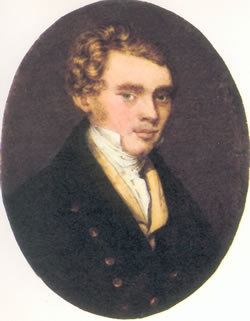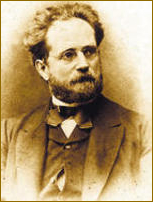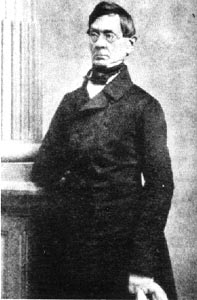|
Karl Holz (violinist)
Karl Holz (1798 – 9 November 1858) was an Austrian violinist. He played second violin in Ignaz Schuppanzigh's string quartet and served as secretary to Ludwig van Beethoven during the last few years of the composer's life. Early career In Vienna in 1819, the violinist Joseph Böhm assembled a new string quartet, and Holz – a civil servant in the Austrian government by profession – joined as second violin. In 1823, the violinist Ignaz Schuppanzigh returned to the city after several years away. He had formed a string quartet in Vienna in the 1790s; Schuppanzigh was an old friend of Beethoven's and had given the first performance of the composer's String Quartets Nos. 1–6, Op. 18 (Beethoven), first six string quartets Op. 18. Böhm's quartet disbanded, and Holz joined Schuppanzigh's reformed quartet. [...More Info...] [...Related Items...] OR: [Wikipedia] [Google] [Baidu] |
Holz Karl
Holz oltsis a German surname meaning ''wood'' or ''timber'', and may refer to: * Arno Holz (1863–1929), German poet and dramatist * Betty W. Holz (1919–2005), American mathematician * George Holz, American photographer * Joshua Holz, creator of the 2016 Damn Daniel internet meme * Justa Holz-Mänttäri, translation scholar * Karl Holz (executive) (born 1952), current chairman and CEO of Euro Disney SCA * Karl Holz (Gauleiter) (1895–1945), German Nazi NSDAP Gauleiter of Franconia and SA Gruppenführer * Karl Holz (violinist) (1798–1858), Austrian violinist and friend of Beethoven * Richard E. Holz (1914–1986), American brass band composer Other uses * Short for ''Holzblasinstrumente'', see woodwinds See also * Holt (other) Holt or holte may refer to: Natural world *Holt (den), an otter den * Holt, an area of woodland Places Australia * Holt, Australian Capital Territory * Division of Holt, an electoral district in the Australian House of Represen ... [...More Info...] [...Related Items...] OR: [Wikipedia] [Google] [Baidu] |
Ludwig Nohl
Ludwig Nohl (born 5 December 1831 in Iserlohn; died 15 December 1885 in Heidelberg) was a German music scholar and writer best known for discovering and publishing Beethoven's famous bagatelle, "Für Elise". Life After graduation from the Gymnasium in Duisburg, Nohl studied jurisprudence at the universities in Bonn, Heidelberg, and Berlin, where he received instruction in music from Siegfried Dehn and Friedrich Kiel. From 1853 to 1856 he was a referendary and undertook journeys to France and Italy, and he also taught music in Heidelberg. In 1860 he wrote his thesis on Mozart and earned the rank of privatdozent for "History and Aesthetic of Musical Art." In 1864 he moved to Munich and made an introduction to Richard Wagner, whose works he had praised in his writings. In 1865 he was awarded by King Ludwig II the title of Professor of Music at the University of Munich for his compilation of Mozart's letters. The university faculty, however, was disinclined to Nohl, and he was not ... [...More Info...] [...Related Items...] OR: [Wikipedia] [Google] [Baidu] |
Male Classical Violinists
Male (symbol: ♂) is the sex of an organism that produces the gamete (sex cell) known as sperm, which fuses with the larger female gamete, or ovum, in the process of fertilization. A male organism cannot reproduce sexually without access to at least one ovum from a female, but some organisms can reproduce both sexually and asexually. Most male mammals, including male humans, have a Y chromosome, which codes for the production of larger amounts of testosterone to develop male reproductive organs. Not all species share a common sex-determination system. In most animals, including humans, sex is determined genetically; however, species such as ''Cymothoa exigua'' change sex depending on the number of females present in the vicinity. In humans, the word ''male'' can also be used to refer to gender in the social sense of gender role or gender identity. Overview The existence of separate sexes has evolved independently at different times and in different lineages, an example o ... [...More Info...] [...Related Items...] OR: [Wikipedia] [Google] [Baidu] |
19th-century Classical Violinists
The 19th (nineteenth) century began on 1 January 1801 ( MDCCCI), and ended on 31 December 1900 ( MCM). The 19th century was the ninth century of the 2nd millennium. The 19th century was characterized by vast social upheaval. Slavery was abolished in much of Europe and the Americas. The First Industrial Revolution, though it began in the late 18th century, expanding beyond its British homeland for the first time during this century, particularly remaking the economies and societies of the Low Countries, the Rhineland, Northern Italy, and the Northeastern United States. A few decades later, the Second Industrial Revolution led to ever more massive urbanization and much higher levels of productivity, profit, and prosperity, a pattern that continued into the 20th century. The Islamic gunpowder empires fell into decline and European imperialism brought much of South Asia, Southeast Asia, and almost all of Africa under colonial rule. It was also marked by the collapse of the large ... [...More Info...] [...Related Items...] OR: [Wikipedia] [Google] [Baidu] |
Austrian Classical Violinists
Austrian may refer to: * Austrians, someone from Austria or of Austrian descent ** Someone who is considered an Austrian citizen, see Austrian nationality law * Austrian German dialect * Something associated with the country Austria, for example: ** Austria-Hungary ** Austrian Airlines (AUA) ** Austrian cuisine ** Austrian Empire ** Austrian monarchy ** Austrian German (language/dialects) ** Austrian literature ** Austrian nationality law ** Austrian Service Abroad ** Music of Austria ** Austrian School of Economics * Economists of the Austrian school of economic thought * The Austrian Attack variation of the Pirc Defence chess opening. See also * * * Austria (other) * Australian (other) * L'Autrichienne (other) is the feminine form of the French word , meaning "The Austrian". It may refer to: *A derogatory nickname for Queen Marie Antoinette of France *L'Autrichienne (film), ''L'Autrichienne'' (film), a 1990 French film on Marie Antoinette wit ... [...More Info...] [...Related Items...] OR: [Wikipedia] [Google] [Baidu] |
Musicians From Vienna
A musician is a person who composes, conducts, or performs music. According to the United States Employment Service, "musician" is a general term used to designate one who follows music as a profession. Musicians include songwriters who write both music and lyrics for songs, conductors who direct a musical performance, or performers who perform for an audience. A music performer is generally either a singer who provides vocals or an instrumentalist who plays a musical instrument. Musicians may perform on their own or as part of a group, band or orchestra. Musicians specialize in a musical style, and some musicians play in a variety of different styles depending on cultures and background. A musician who records and releases music can be known as a recording artist. Types Composer A composer is a musician who creates musical compositions. The title is principally used for those who write classical music or film music. Those who write the music for popular songs may be ... [...More Info...] [...Related Items...] OR: [Wikipedia] [Google] [Baidu] |
1858 Deaths
Events January–March * January – **Benito Juárez (1806–1872) becomes Liberal President of Mexico. At the same time, conservatives install Félix María Zuloaga (1813–1898) as president. **William I of Prussia becomes regent for his brother, Frederick William IV, who had suffered a stroke. * January 9 ** British forces finally defeat Rajab Ali Khan of Chittagong ** Anson Jones, the last president of the Republic of Texas, commits suicide. * January 14 – Orsini affair: Felice Orsini and his accomplices fail to assassinate Napoleon III in Paris, but their bombs kill eight and wound 142 people. Because of the involvement of French émigrés living in Britain, there is a brief anti-British feeling in France, but the emperor refuses to support it. * January 25 – The ''Wedding March'' by Felix Mendelssohn becomes a popular wedding recessional, after it is played on this day at the marriage of Queen Victoria's daughter Victoria, Princess Royal, to Princ ... [...More Info...] [...Related Items...] OR: [Wikipedia] [Google] [Baidu] |
1798 Births
Events January–June * January – Eli Whitney contracts with the U.S. federal government for 10,000 muskets, which he produces with interchangeable parts. * January 4 – Constantine Hangerli enters Bucharest, as Prince of Wallachia. * January 22 – A coup d'état is staged in the Netherlands ( Batavian Republic). Unitarian Democrat Pieter Vreede ends the power of the parliament (with a conservative-moderate majority). * February 10 – The Pope is taken captive, and the Papacy is removed from power, by French General Louis-Alexandre Berthier. * February 15 – U.S. Representative Roger Griswold (Fed-CT) beats Congressman Matthew Lyon (Dem-Rep-VT) with a cane after the House declines to censure Lyon earlier spitting in Griswold's face; the House declines to discipline either man.''Harper's Encyclopaedia of United States History from 458 A. D. to 1909'', ed. by Benson John Lossing and, Woodrow Wilson (Harper & Brothers, 1910) p171 * March &ndas ... [...More Info...] [...Related Items...] OR: [Wikipedia] [Google] [Baidu] |
Josef Linke
Joseph Linke (also spelled Joseph Lincke, Josef Linke; 8 June 1783 – 26 March 1837) was a cellist and composer who had a distinguished career in Vienna, as a soloist and as a member of the Schuppanzigh Quartet. He took part in the first performances of string quartets and other chamber works of Ludwig van Beethoven. Early life and career Linke was born in Trachenberg in Silesia (now Żmigród in Poland). His father, a violinist at the chapel of Prince Hatzfeld, taught him the violin. He was an orphan at the age of ten, and supported himself by copying music. In 1800 he became violinist in the Dominican convent at Breslau; he studied cello with Lose, the first cellist of the Breslau Opera House, where Carl Maria von Weber was the conductor. On Lose's departure, Linke succeeded him in the theatre orchestra. [...More Info...] [...Related Items...] OR: [Wikipedia] [Google] [Baidu] |
Leopold Jansa
Leopold Jansa (23 March 1795, Wildenschwert ( cs, Ústí nad Orlicí), far north-east Bohemia, Austrian Empire – 25 January 1875, Vienna) was a Bohemian violinist, composer, and teacher. He was born in Wildenschwert, Austria-Hungary (present day Ústí nad Orlicí, Czech Republic) and died in Vienna. He took violin lessons as a child in his home town. He completed his education in Brünn. In 1817 he came to Vienna to study law. However, he soon took up composition lessons with Jan Václav Voříšek and Emanuel Förster. He was a member of the Braunschweig orchestra in 1823, while in 1824 he joined the Vienna Court Orchestra. In 1834, he became music director and professor at University of Vienna. From 1834 to 1850, he participated in various String quartets. He took over from Ignaz Schuppanzigh, with Karl Holz (violinist), Karl Holz (second violin) and Joseph Linke (cello) from the Schuppanzigh Quartet, adding Karl Traugott Queisser (viola). From 1845 to 1848 he directed ... [...More Info...] [...Related Items...] OR: [Wikipedia] [Google] [Baidu] |
Concert Spirituel
The Concert Spirituel ( en, Spiritual Concert) was one of the first public concert series in existence. The concerts began in Paris in 1725 and ended in 1790. Later, concerts or series of concerts of the same name occurred in Paris, Vienna, London and elsewhere. The series was founded to provide entertainment during the Easter fortnight and on religious holidays when the other spectacles (the Paris Opera, Comédie-Française, and Comédie-Italienne) were closed. The programs featured a mixture of sacred choral works and virtuosic instrumental pieces, and for many years took place in a magnificently-decorated ''Salle des Cent Suisses'' (Hall of the Hundred Swiss Guards) in the Tuileries Palace. They started at six o’clock in the evening and were primarily attended by well-to-do bourgeois, the lower aristocracy, and foreign visitors. In 1784 the concerts were moved to the stage area of the ''Salle des Machines'' (an enormous former opera house in the Tuileries), and in 1790, when t ... [...More Info...] [...Related Items...] OR: [Wikipedia] [Google] [Baidu] |
Anton Schindler
Anton Felix Schindler (13 June 1795 in Medlov – 16 January 1864 in Bockenheim (Frankfurt am Main)) was an Austrian law clerk and associate, secretary, and early biographer of Ludwig van Beethoven. Life Schindler moved to Vienna in 1813 to study law, and from 1817 to 1822 was a clerk in a law office there. He was a competent, though not an exceptional violinist, and played in various musical ensembles, first meeting Beethoven in 1814. He gave up his law career, becoming in 1822 first violinist at the Theater in der Josefstadt, and from 1825 first violinist at the Theater am Kärntnertor. His acquaintance with Beethoven continued, and from 1822, he lived in the composer's house, as his unpaid secretary.Paul Nettl. "Schindler, Anton Felix". ''Beethoven Encyclopedia''. Philosophical Library, New York, 1956. [...More Info...] [...Related Items...] OR: [Wikipedia] [Google] [Baidu] |








